I. Терон от Акрагант (за празника Теоксения)
1. Съдържание
Искам да прославя славния Акрагант с химн за олимпийската победа на Терон; и се обръщам към Тиндаридите и хубавокосата Елена. Нека ме подкрепя и Музата. Венците по конските гриви ме подтикват да изпълня определения от боговете дълг към сина на Енесидам. И Пиза ме подтиква да говоря, защото от нея идват божествените песни: откакто един мъж - етолиец - постави на нечия глава за пръв път маслиновата украса, която синът на Амфитрион донесе от сенчестия извор на Истър, след като убеди с реч хиперборейския народ - служителя на Аполон.
Той освети олтарите на баща си (Зевс) и определи съдийството и петгодишния период на игрите при бреговете на Алфей. Но не цъфтяха хубави дървета в земята на Кронидовия Пелопс (1-24).
И тогава духът му го подтикна да върви към Истрийската земя, където го посрещна дъщерята на Латона - него, идващия от Аркадия, където по известие на Евристей и принуден от баща си преследваше златорогата сърна. И, следвайки я, видя земята зад диханията на Борей, и се смая, като видя дърветата. И бе обзет от сладка жажда да ги посади при края на пътя, където конете се обръщат дванайсет пъти. И сега на този празник той идва заедно с близнаците на дълбокопрепасаната Леда: защото, когато тръгна за Олимп, на тях остави да уреждат състезанието между мъжете (25-38).
А мен духът ми ме подтиква да кажа на Еменидите и Терон, че славата им е дадена от хубавоконните Тиндариди, защото от всички смъртни те им посвещават най-многото трапези: и с благопристойна мисъл пазят ритуала на безсмъртните.
И ако водата превъзхожда, а сред придобивките най-уважавано е златото, то сега Терон стигна до върха - и от дома си се докосва до стълбовете на Херакъл. Нататък вече няма път нито за мъдреците, нито за немъдрите. И няма да вървя натам, защото би било напразно (39-45).
2. Коментари
This ode celebrates the same victory as the preceeding one. It was
sung at the feast of the Theoxenia, given by Theron in the name of
the Dioskouroi (Kastor and Polydeukes) to the other gods. Hence the
epithet "hospitable" (philoxeinois) applied to the Dioskouroi
in the first line. The clan of the Emmenidai to which Theron belonged
was especially devoted to the worship of the Twins.
(E. Myers)
The third Olympian celebrates the same victory as the preceding ode. In what order the two were sung does not appear. Ol. 2 was probably performed in the palace of Theron; Ol. 3 in the Dioskureion of Akragas. The superscription and the Scholia indicate that this ode was prepared for the festival of the Theoxenia, at which Kastor and Polydeukes entertained the gods. It is natural to assume the existence of a special house-cult of the Dioskuroi in the family of the Emmenidai...
The third Olympian, then, combines the epinikian ode with the theoxenian hymn. The Tyndaridai are in the foreground... It is the Tyndaridai, the twin sons of Leda, that are the ruling spirits of the Olympian contests. It is the Tyndaridai that are the givers of fame to Theron. The victory is the same as that celebrated in the previous ode, but there Theron is always present to our minds. We are always thinking of the third member of the triad - god, hero, man. Here Theron is kept back... Before it was merit, here it is grace.
The poem is a solemn banquet-hymn. The victory calls for the fulfilment of a divine service, a theodmaton chreos. Pisa is the source of theomoroi aoidai. The myth has the same drift. It is the story of the Finding of the Olive, the token of victory. This is no native growth. It was brought by Herakles from the sources of the Istros, a memorial of Olympic contests. It was not won by force, but obtained by entreaty from the Hyperborean servants of Apollo, and the hero craved it as shade for the sacred enclosure of his sire, and as a wreath for human prowess. Already had the games been established, but the ground was bare to the keen scourgings of the sun. Sent to Istria on another errand by Zeus, he had beheld and wondered. Thither returning at the impulse of his heart, he asked and received, and planted the olive at Olympia, which he still visits with the sons of Leda.
(B. L. Gildersleeve)
II. Псаумий от Камарина, надбягване с колесници (мулета)
1. Съдържание
2. Коментари
Psaumis won this race in the year 452; therefore this ode and its
companion, the next following, are the latest work of Pindar possessed
by us to which we can assign a date. The mule-chariot-race was introduced at Olympia B.C. 500 and abolished B.C. 444, according to Pausanias.
This ode seems to have been written immediately on Psaumis' victory,
to be sung the same night beneath the moon by the company of friends
who escorted the winner to return thanks at the altar of Zeus.
(E. Myers)
Kamarina was founded by the Syracusans, 599 BC, one hundred and thirty-five years after Syracuse itself. Destroyed by Syracuse in consequence of a revolt, it was some time afterwards restored by Hippokrates. Again stripped of its inhabitants by Gelon, it was rebuilt once more by men of Gela (461 BC). The proverb mê kinei Kamarinan: akinêtos gar ameinôn is supposed to refer to the unhealthy situation of the city...
Of Psaumis we know absolutely nothing, except what Pindar is pleased to tell us in this ode and the next. Both odes are supposed to refer to the same victory, apênêi, that is, with a mule chariot... This gives us a terminus. The mule-race was done away with, Ol. 84 (444 BC). Böckh puts Psaumis's victory Ol. 82 (452 BC), and maintains that the victor had failed in the four-horse chariot race, and in the race with the single horse (kelêti). The apênêi victory then was a consolation, and there seems to be a note of disappointment in the rhythm.
According to Böckh the ode was sung in Olympia; according to Leopold Schmidt in Kamarina. The latter view seems to be the more probable. The fourth ode was sung in the festal procession, the fifth, the genuineness of which has been disputed, at the banquet.
The key of this brief poem is given, v. 16: diapeira toi brotôn elenchos. The final test is the true test. Success may be slow in coming, but when it comes it reveals the man. The thunderchariot of Zeus is an unwearied chariot. What though his Horai revolve and revolve ere they bring the witness of the lofty contest? Good fortune dawns, and then comes gratulation forthwith. The light comes late, but it is a light that shines from the chariot of a man who hastens to bring glory to Kamarina. Well may we pray, “God speed his other wishes.” Well may we praise the man - liberal, hospitable, pure-souled, lover of peace, lover of his state. No falsehood shall stain this record of a noble life. The final trial is the test of mortals.
So, by trial, Erginos, the Argonaut, was saved from the reproach of the Lemnian women. Unsuccessful before, he won the race in armor, and said to Hypsipyle as he went after the crown: “This is what I am in swiftness. My hands and heart fully match my feet. The race is for the young, but I am younger than my seeming. Gray hairs grow often on young men before the time. The final trial is the test of mortals.”
Psaumis had every virtue but success; now this is added. So Erginos was a man of might, of courage; now he has shown his speed.
(B. L. Gildersleeve)
III. Псаумий от Камарина (за изпълнение в Камарина)
1. Съдържание
2. Коментари
This ode is for the same victory as the foregoing one, but was to be
sung after Psaumis' return home, at Kamarina, and probably at, or in
procession to, a temple of either Pallas, Zeus, or the tutelary nymph
Kamarina, all of whom are invoked. The city is called "new-peopled"
(neoikos) because it had been destroyed by Gelo, and was only
restored B.C. 461, nine years before this victory, the first which had
been won by any citizen since its restoration.
(E. Myers)
The victory celebrated here is the same as that of the preceding ode.
The verse about which the poem revolves is v. 15: aiei d' amph' aretaisi ponos dapana te marnatai pros ergon | kindunôi kekalummenon. The preceding poem dwells on the importance of the final trial; this gives the conditions of success, ponos dapana te. The wain must be untiring, the sacrifices great and various. To gain an Olympian victory, to found a new city, costs toil and money. The flower of victory is sweet (aôtos glukus), the abode of Pelops lovely (euêratoi stathmoi), now that the work is over, the price paid. So the daughter of Okeanos, Kamarina, who is to greet the victor with laughing heart, was builded with much toil, much cost. The stately canals, the grove of houses - these, like apênê, like bouthusiai, were not made for naught. May blessings rest on city and on Olympian victor! May the one have the adornment of the noble deeds of her sons, the other a happy old age, with his sons clustering about him! ponos dapana te have brought their reward. Wealth sufficient remains. Add fame. What more? Let him not seek to become a god.
There is no myth. The founding of Kamarina is fairy-tale, is magic achievement, enough.
(B. L. Gildersleeve)
IV. Агезий от Сиракуза, надбягване с колесници (мулета, за изпълнение в Стимфал)
1. Съдържание
2. Коментари
One of the Iamid clan, to which belonged hereditary priestly functions
in Arcadia and at Olympia, had come with the first colonists to Syracuse,
and from him the present victor Agesias was descended. Thus
the ode is chiefly concerned with the story of his ancestor Iamos.
Agesias was a citizen of Stymphalos in Arcadia, as well as of Syracuse,
where he lived, and the ode was sung by a chorus in Stymphalos,
B.C. 468.
(E. Myers)
Agesias, son of Sostratos, was a Syracusan of the noble family of the Iamidai, descendants of Iamos, son of Apollo. The Iamidai were hereditary prophets among the Dorians, hereditary diviners at the great altar of Zeus in Olympia. Early settlers of Italy and Sicily, they retained their connection with Arkadia. Our Agesias, a citizen of Syracuse, was also a citizen of Stymphalos. As a Syracusan he was an active partisan of Hieron, and after the fall of the tyrannis was put to death by the Syracusans.
The composition of the ode cannot be earlier than 476 BC, nor later than 468 BC, the earliest and the latest Olympian celebrations that fall within the reign of Hieron. Ol. 77 (472 BC) is excluded, because Pindar was at that time in Sicily, and the poem was composed in Greece. Zeus Aitnaios would seem more appropriate after the founding of Aitna (Ol. 76).
The ode was probably sung at Stymphalos and repeated at Syracuse. One Aineas brought the poem from Thebes to Stymphalos, and directed the performance. We do not know whether he was an assistant of Pindar's or a local poet of the Iamid stock.
The verses to which one always comes back in thinking over this poem are these (100, 101): agathai de pelont' en cheimeriai | nukti thoas ek naos apeskimphthai du' ankurai. Agesias, the hero of the poem, unites in his person Syracusan and Stymphalian. At Olympia he is victor in the games and steward of an oracle. At Syracuse he is sunoikistês of the city and beloved of the citizens. He is prince and prophet, as Amphiaraos was warrior and prophet, and his victory must be celebrated at Pitana, as it must be celebrated at Syracuse. His charioteer, Phintis, must speed to the banks of the Eurotas, and Pindar's leader, Aineas, must conduct the festal song. Agesias's maternal stock was Arkadian; from thence came his prophetic blood - from Euadne, daughter of Poseidon, a prophetic god; from Iamos, whom Euadne bore to Apollo, a prophetic god.
The myth of Iamos shows the value of this double help - the result, a double treasure of prophecy. Prosperity and fame attend the Iamidai. Herakles helped Iamos at Olympia; Hermes the Iamidai in Arkadia. Thebes and Stymphalos are akin, as Herakles, Boeotian hero, and Hermes, Arkadian god, unite to bless the Iamidai. So the song must praise Hera, for Arkadia was the home of her virginity, and vindicate Boeotia, home of Herakles; must remember Syracuse, and wish the victor a happy reception in one home as he comes from another home -- as he comes from Arkadia to Syracuse. He has two homes in joy - two anchors in storm. God bless this and that (tônde keinôn te klutan aisan parechoi phileôn). Nor is the mention of the two anchors idle. May Amphitrite's lord speed Agesias's ship, and prosper the poet's song.
This is one of the most magnificent of Pindar's poems, full of color, if not so dazzling as the seventh Olympian. The myth of Iamos, the mantis ancestor of a mantis, is beautifully told. Profound moral there is none to me discernible. “He that hath gods on either side of his ancestry shall have the gods to right and left, of him for aye,” shows an aristocratic belief in blood (oude pot' ekleipsein genean).
There is such a ganglion of personal and tribal relations involved in this piece that one is tempted to long historical and antiquarian disquisitions; but if we accept Pindar's statement as to the connection between Thebes and Arkadia, nothing more is necessary to the enjoyment of the ode.
(B. L. Gildersleeve)
About the Latin Academy in the Vatican
13 years ago
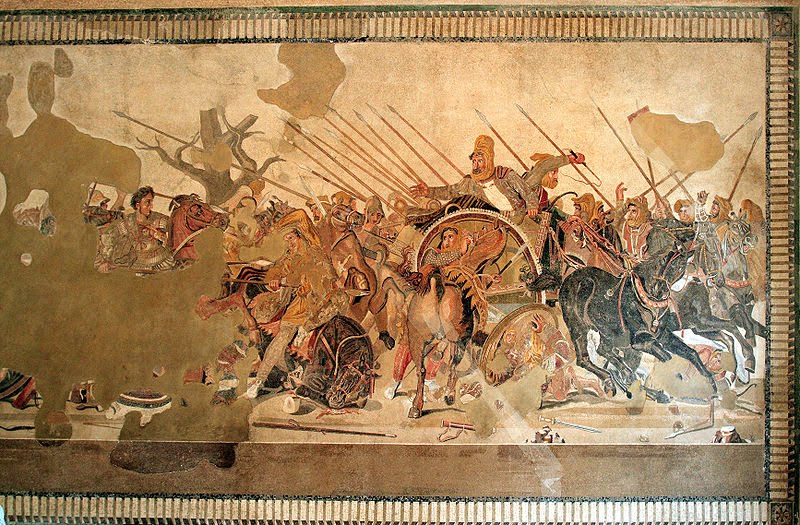
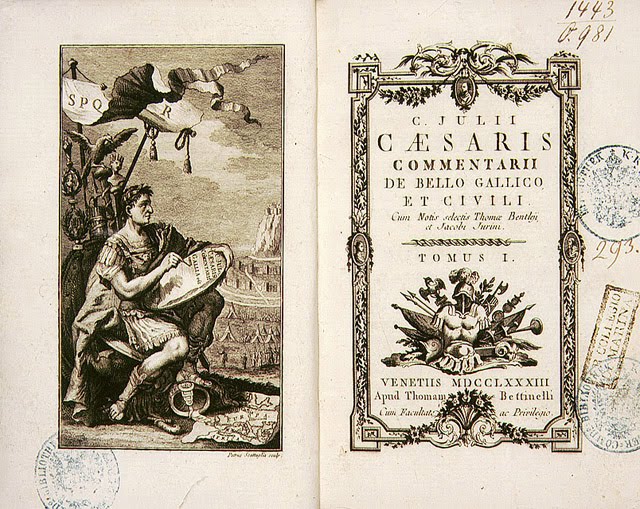
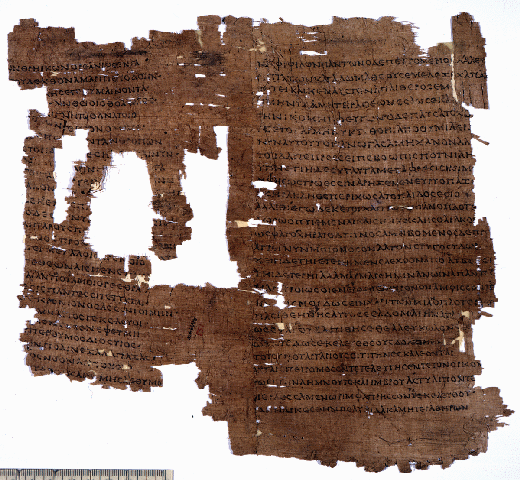
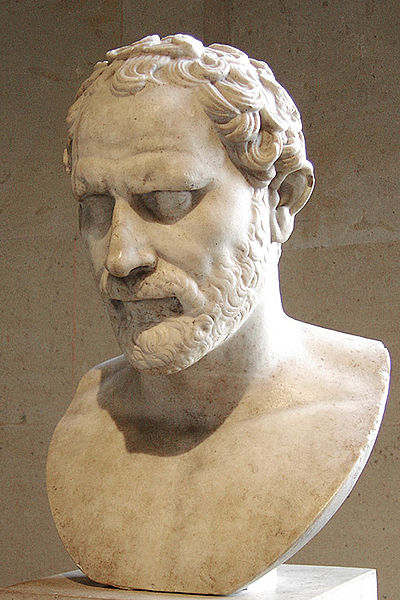


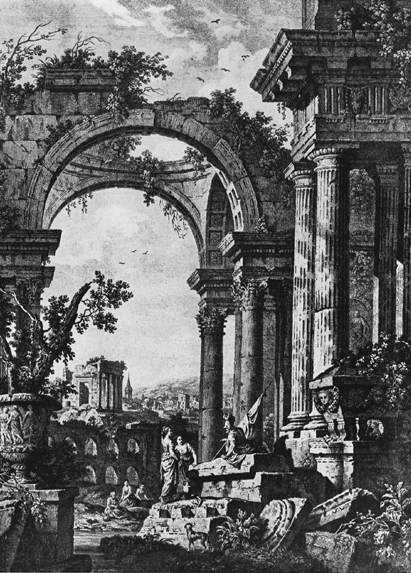




No comments:
Post a Comment